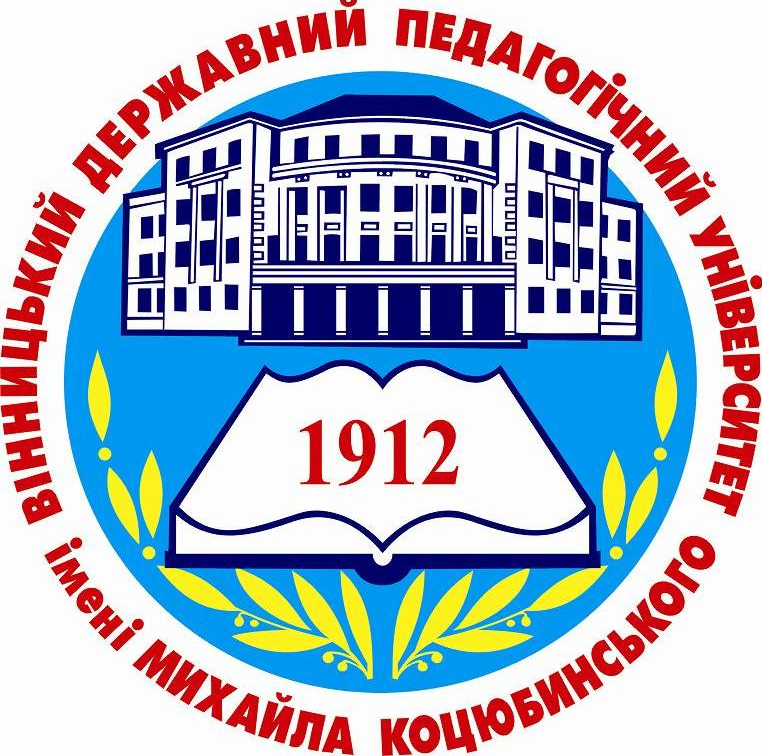
- •Vinnytsia state pedagogical university
- •Vinnytsia – 2012
- •Common problems in teaching english literature in non-native contexts
- •Language as a means of manipulation in advertising
- •Grammatical compression
- •In newspaper headlines
- •Fulbright collaboration
- •Ivakhnenko o.A.
- •Priorities for phonology in the pronunciation class
- •The linguocognitive implications of teaching english phraseologisms to ukrainian-speaking students
- •Tripses fulbright projects
- •Грачова Ірина
- •Вітчизняна граматична традиція: проблема визначення статусу слів-квантифікаторів
- •Цветовая номинация в аспекте вторичной языковой картине мира.
- •Students’ Staff
- •Learning and teaching english grammar
- •Narrator in a modern novel
- •Teaching auditory-pronunciation skills at a secondary school.
- •The survey of metaphor interpretation
- •Consumer society in the contemporary world
- •Grishchenko
- •Types of learning and teaching activities
- •The notion of norm and anomaly in language
- •Allusions in w.S. Maugham’s novel “then and now”
- •1. Allusions based on mythology.
- •2. Allusions based on Biblical themes.
- •3. Allusions based on literary and artistic works.
- •The influential capacity of political discourse
- •Language as a universal sign system
- •Positive thinking rules the masses
- •Dramatisation: one of the motivation means
- •Teaching speaking with socio-cultural component
- •How to achieve effective communication?
- •Текстообразующие функции местоимений в поэтических текстах
- •General characteristics of the nationally biased units of lexicon
- •Peculiar features of the subject lingvoculture
- •Review of translation methods in phraseology
- •Advantages of the periodical literature over the educational textbooks and school textbooks
- •The creative potential of stylistic foregrounding
- •Concept as the basic notion of cognitive linguistics.
- •Vaskovnyuk m.
- •The main features of teaching english monologue speech
- •Vlasenko Yu.
- •Political discourse (p. D.) as viewed in modern philology
- •Volkovska a.
- •Syntactical pecularities of the beatles’ songs
- •Peculiarities of slang formation
- •Contents Teaching staff
- •Students’ Staff
MINISTRY OF EDUCATION AND SCIENCE OF UKRAINE
Vinnytsia state pedagogical university
NAMED AFTER MYKHAILO KOTSYUBYNSKIY

INSTITUTE OF FOREIGN LANGUAGES\
LANGUAGE, EDUCATION, CULTURE:
Integrative perspectives in EFL/ESP context
Conference Papers
April 2-3, 2012
Vinnytsia – 2012
МІНІСТЕРСТВО ОСВІТИ І НАУКИ УКРАЇНИ
ВІННИЦЬКИЙ ДЕРЖАВНИЙ ПЕДАГОГІЧНИЙ УНІВЕРСИТЕТ
ІМЕНІ МИХАЙЛА КОЦЮБИНСЬКОГО
ІНСТИТУТ ІНОЗЕМНИХ МОВ
ОДИНАДЦЯТА МІЖНАРОДНА СТУДЕНТСЬКА ІНТЕРНЕТ-КОНФЕРЕНЦІЯ
МОВА, ОСВІТА, КУЛЬТУРА:
Інтеграційні тенденції в сучасному світі
2-3 квітня 2012 року
Матеріали конференції
Вінниця – 2012
МОВА, ОСВІТА, КУЛЬТУРА: інтеграційні тенденції в сучасному світі: Матеріали дев’ятої міжнародної студентської конференції / Гол. ред. Ямчинська Т.І. – Вінниця, 2012. – 60 с.
Редакційна колегія:
доц. Ямчинська Т.І. (головний редактор)
доц. Козачишина О.Л.
ст. викл. Змієвська О.О.
Технічний редактор:
Забужанська І.Д.
Відповідальний за випуск:
доц. Ямчинська Т.І.
© ВДПУ Вінниця, 2012
Stoyko-Gota Svetlana
(Vinnitsa State Pedagogical University)
Common problems in teaching english literature in non-native contexts
The study of English Literature is included to the curriculum of both native and non-native English-speaking countries. The reason for the need and purpose of study of English literature may possibly lie in its increasing reputation as the literature of the world language. With this, the native English Literature is considered essential and important as part of the learning process of the English
language. It might be learned and studied for its literary aspects, to know and enjoy English in original native expressions and to be acquainted with the works of great literary masters. English literature has always been looked upon with high regards for its variety of subjects, style, reflection of life and magnitude. Mostly the aesthetic beauty and the utility of language proficiency is the main reason behind the inclusion of literature in language study.
But in teaching English Literature in non-native contexts, teachers and learners face certain difficulties and problems due to cultural, racial and linguistic differences. British cultural references are not familiar to the learners and hence many times they do not understand the matter as is viewed by the author.
This cultural aspect includes all such factors like geography, topography, climate, history, religion, social and personal relationships, habits of thoughts, social values, moral codes, arts, sports and entertainments and so on.
Next is the racial difference in attitudes and in certain assumptions. Racial prejudices about the writer or about his country may become an obstacle in having proper understanding and learning of English Literature or literature of any non-native language.
Then the literature produced in long past with past references and ideas may create
misunderstanding in the minds of learners as to the relevance of such materials. Such works are seen to be outdated topics to learn. In addition, if the learner is not familiar with the history or social upheavals of the country, with such references he may feel it strange and out of his range of understanding.
Moreover, on the part of learner, if his linguistic ability is not much developed, he faces difficulties in following the meanings and usages at the syntactic, verbal, lexical and other linguistic and other stylistic levels in that work.
Sometimes the huge size of the original work, and the obscurity and clumsiness of expressions in the literature prescribed become an impediment. Some other times, the inability of teachers to deal with the prescribed book hinders the process of comprehending and so learning it properly.
With all such reasons, problems arising in teaching English literature can become a challenge in non-native contexts.
Kozachyshyna O.L.
(Vinnytsia)
